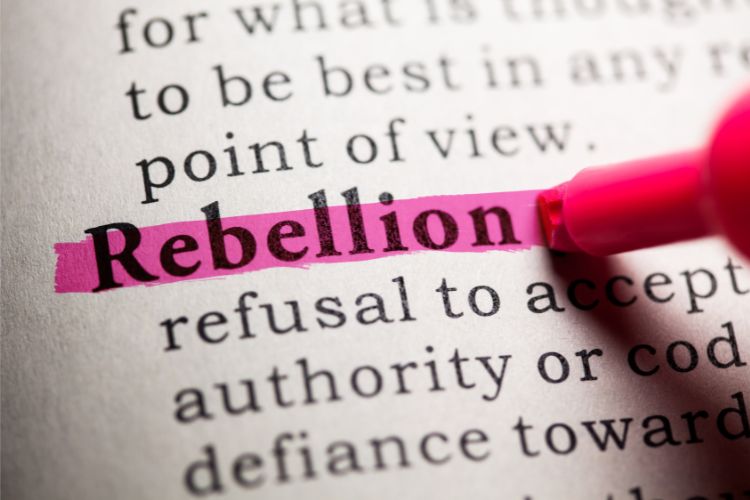Do you reflect on others’ behavior thinking they’re doing something wrong? Or something that won’t serve them in the long run?
A battered woman who won’t leave a situation, an elderly person who refuses help when walking across a busy street. You wonder what they are thinking.
It reminds me of the young child struggling to get dressed and refusing the help to insist they can do it themselves.
As humans, there’s an ever present conflict between comfort and growth in each of us. Inside the brain, at least.
I think of it as a habit of rebelling. Comfort is a primal instinct, a desire to stay safe at all times.
Yet seeking growth allows us to experience our best possible self.
Think of all the skills, habits, or behaviors you want more of — speaking a foreign language, better sleep, regular exercise, healthy eating, or wealth creation.
My modern brain, the logical thinking part, sets intentions to write or exercise more. I record a block on my calendar and when the planned time comes; I let myself off the hook by thinking I don’t have to do it now.
My new mantra seems to be, “I can do what I want when I want to.” I’m usually not aware of my rebellion when I make the choice not to do what I’d planned.
I’ve always had a bit of a penchant for trying to get away with things others expected me to do. Often this behavior shows up as procrastination — late nights finishing assignments or missed deadlines.
The idea of being able to do what you want when you want is attractive. It makes me feel like I’m in control of my own life.
Not accomplishing things I want seems counterproductive.
Stepping back, you realize you’re trading your longer term life accomplishments or growth for short-term rewards. Giving into the part of your brain that is seeking comfort, safety and ease works against your heart’s desire.
Yet, if you spend a few quiet moments thinking about what you want, you may realize the discomfort is all in your head. Literally.
We make the journey towards what we want hard for ourselves with our thinking. There are no monsters outside the door waiting to do us physical harm.
The discomfort you feel — fear, overwhelm, unprepared — however you would label what you’re feeling, it is simply a feeling. You create the feelings with your thoughts. The feelings are simply chemical and electrical reactions going on in your body, triggered by a thought.
That’s science, not woowoo.
They made these scientific discoveries after you learned about feelings and learned to believe a situation outside of your body caused them.
While I’m usually not aware of what I’m thinking when I encounter a block of time, I’ve planned to create a result I want, I have a theory. For whatever reason, at the moment, I let myself believe the task is something I don’t know how to do or something that’s hard for me to do. I’m not a person whose thoughts won’t let them not do what’s planned. Instead, my brain goes to work figuring out I don’t have to create whatever result I put on the calendar for this time.
The other thing we’ve learned is scolding ourselves doesn’t work. We need to focus on the pleasure that will result from growing outside of our comfort zone.
The habit of cultivating supportive thoughts to tell ourselves is counter to the experiences of many of us — counter to our beliefs about where motivation comes from. Motivation is one of those feelings many of us learned to believe gets triggered by something outside ourselves.
By now, most have learned that external motivation doesn’t work for very long. Frequently our unconscious internal motivations are stronger. There’s simply a more compelling reason based upon past experience to keep doing what you’ve always done.
Better the devil you know than the devil you don’t.
I know what it feels like to do things at the last minute or not at all if no one is expecting it. There’s science to suggest I need to focus more on how I’ll feel when I honor myself and honor the commitments I make to myself in my calendar.
And that can be complicated. When I produce the result, like a blog post, it follows that I will make it public. There’s a concern that no one will like it or read it. There’s a bigger concern that I’ll get some negative feedback. Believing in my own worth rather than accepting the feedback as an indictment of my worth as a person is new.
How does it feel to have my own back no matter what? It may mean I have to be willing to feel embarrassed. That seems like the worst thing that could happen as a result of publishing a blog post.
Right now it seems my commitment to not being embarrassed is stronger than my commitment to completing the results I block out on my calendar. I’m experimenting with how to change this seemingly hard wired reaction to blocking time on my calendar for creating a result.



